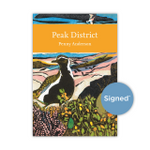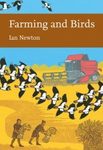"It’s the economy, stupid’ became a meme during Bill Clinton’s 1992 presidential campaign, summing up a world view that has held sway in the political and financial spheres ever since: the idea that capital, commodity and other markets can generate wealth and prosperity and provide solutions to social and environmental ills. Want to reduce carbon emissions? Create a market in carbon credits. Want to save wildlife? Offer payments for ecosystem services and biodiversity offsets.
Many BW readers will be all too familiar with the meme – as they fight for ever diminishing (and so old-school) public funds for nature conservation, or scrabble in the charity and social-media ‘marketplaces’ for donations and grants. Everyone must be an entrepreneur, begging for crumbs from the Masters of the Markets. Meanwhile, out in the actual real natural world, the heroes who do the really critical work to protect wildlife (reserve wardens, naturalists, conservation volunteers, ecologists – underpaid or not paid at all) get on with their jobs and struggle with these sophistries, half-truths and downright lies as best they can.
Hooray, then, for this book! An economist dispensing with the usual nonsense, and applying his mind to the task of devising a sound economic plan for the protection and restoration of Britain’s wildlife. And the plan is a fine one: a new Nature Fund, publicly owned, and administered by government, that brings together the existing meagre public expenditures (Defra, Natural England, SNH, NRW, et al.), plus ‘green charges’ (e.g. from agriculture), plus compensation payments (polluter pays), plus ‘economic rents for depleting non-renewables natural capital assets’ (think oil, gas, minerals) to create a large enough pot of money (the model is loosely based on sovereign wealth funds, such as Norway’s).
Readers may still be resistant: this all sounds OK but what does it mean? Economists have a habit of spinning nice-sounding theory with little substance, so scepticism is understandable. But Helm is nothing if not practical – and is quite prepared to stick his neck out. His plan envisages five categories into which money from the Fund would be channelled: river catchments, agricultural lands, uplands, marine areas, and urban areas. Money could be passed to partners (e.g. RSPB, Wildlife Trusts) in the normal way, but the Fund could also buy and own natural assets, and then have them managed by others. In effect, Helm is proposing a far bigger role for the State, in a back-to-the-future revival of the notion that public goods should be the responsibility of the public sector. Helm wisely concentrates on explaining the possible sources of revenue for a Nature Fund rather than putting a firm number on the size of the pot (the difference between sticking out a neck and putting it on the block), but the logic clearly points at something a long, long way north of £10 billion, which he sees as the minimum (pollution taxes and compensation payments are the real prizes, and additional to that sum).
Ironically for a book by an economist, it suffers from being almost all words and few numbers! Some graphs would have leavened the rather remorseless and somewhat pedagogical style. But these blemishes should not diminish the value of this brave and forthright attempt to begin a new conversation on how to pay to keep our wildlife."
– Bernard Mercer, British Wildlife 30(5), June 2019
"[...] This book is urgent and important. It should be required reading for all interested in turning the Government’s 25 year environment ambition into reality. I wonder if, in 2050, the next generation will recognise that this book was part of a Rachel Carson-style moment that helps to kick-start the wholesale restoration and recovery of nature: I hope so."
– Andy Clements, BTO book reviews



































